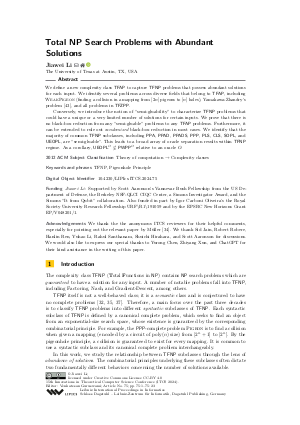LIPIcs.ITCS.2024.75.pdf
- Filesize: 0.9 MB
- 23 pages

 Creative Commons Attribution 4.0 International license
Creative Commons Attribution 4.0 International license













Feedback for Dagstuhl Publishing